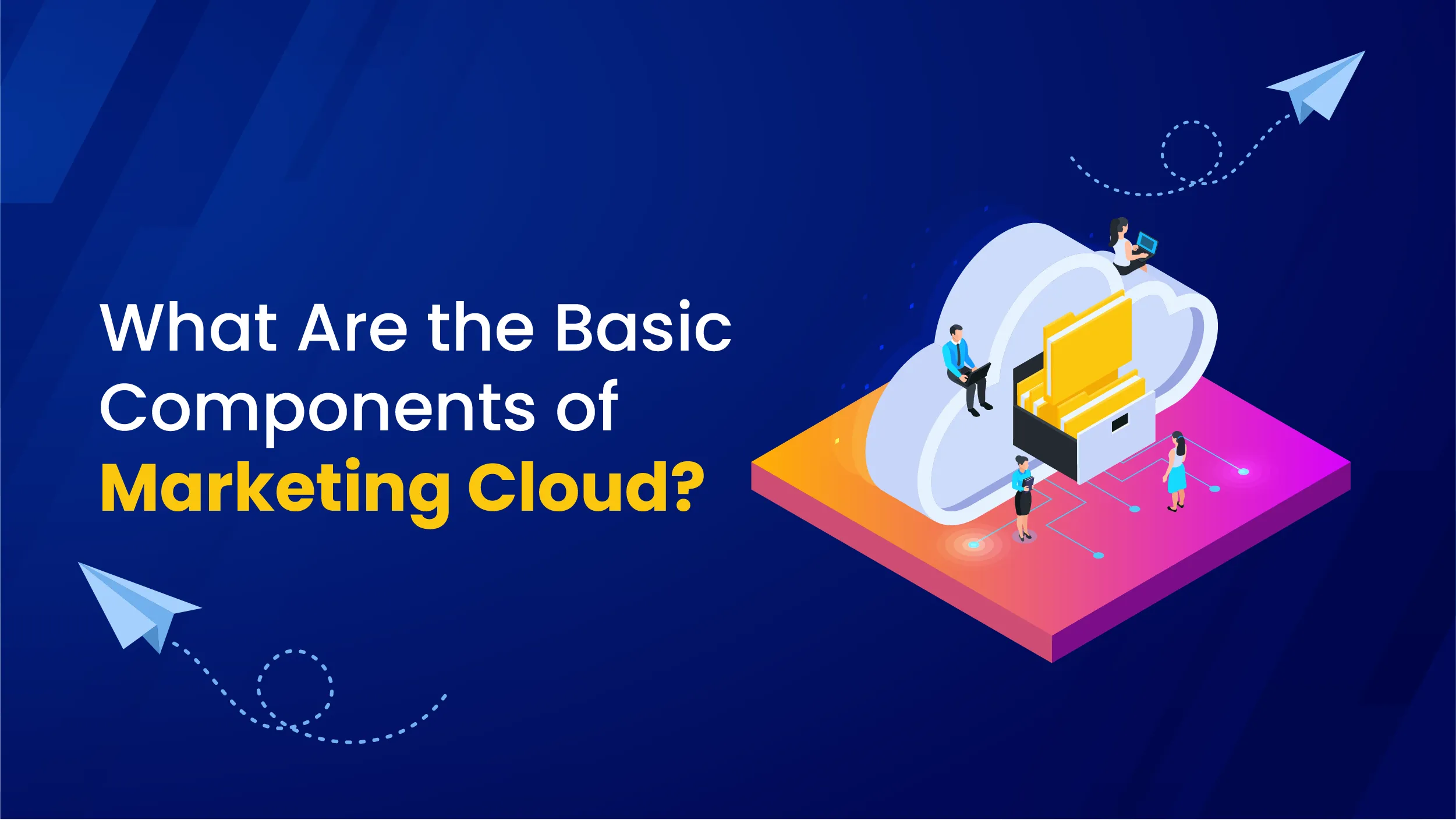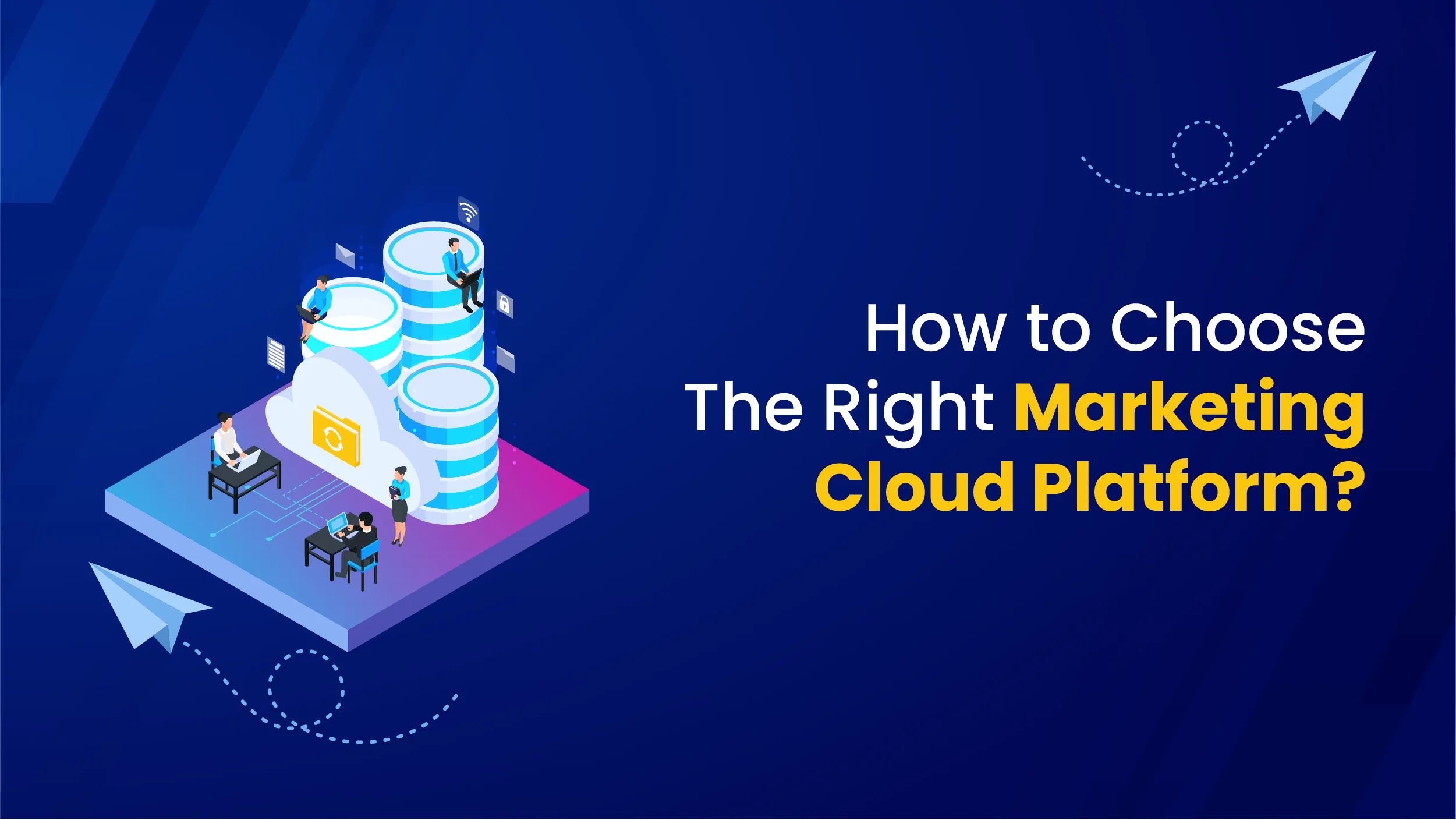Businesses must master the art of efficiently interacting with clients through a variety of channels and providing tailored experiences in the rapidly evolving digital landscape of today. These expectations are frequently not realized by traditional marketing strategies, which results in fragmented customer encounters and lost opportunities. Nevertheless, cloud-based marketing tools offer a solution. Personalized customer journeys, campaign performance optimization, and marketing process streamlining are all made possible by marketing clouds, which offer an extensive range of tools and functionalities. Let’s learn more about it.
What Is a Marketing Cloud?
A marketing cloud is an all-inclusive digital marketing platform that gives marketers the ability to effectively manage and maximize their efforts through a variety of channels. Customer journey management, email marketing, mobile marketing, social media marketing, site personalization, advertising, content development and management, data analysis, and other functions are often included. Salesforce, Adobe, Oracle, etc are some of the examples of marketing cloud platforms.
What Are the Basic Components of Marketing Cloud?
 While the specific components or features can differ based on the platform, several key elements commonly found include:
While the specific components or features can differ based on the platform, several key elements commonly found include:
- Email Studio: This tool enables marketers to design, send, and monitor email campaigns. It includes features like email templates, personalization options, segmentation, and automation to ensure targeted and engaging communications.
- Social Studio: Social Studio helps marketers manage and interact with their audience on social media. It offers tools for social listening, scheduling content, publishing, and analytics, aiding marketers in effectively maintaining their social media presence.
- Mobile Studio: Focused on mobile marketing, Mobile Studio allows marketers to create and send personalized messages, such as SMS and push notifications. It enhances mobile engagement and delivers relevant content to users on their mobile devices.
- Journey Builder: Journey Builder is a visual tool that lets marketers map out personalized customer journeys across multiple channels. It helps define the steps and interactions a customer experiences, ensuring a smooth and tailored journey.
- Advertising: Many of these include features for managing and optimizing digital advertising campaigns. These capabilities often encompass audience targeting, ad creation, campaign management, and performance tracking.
- Content Creation and Management: These tools allow for the creation and management of content across various channels. Features typically include content creation, asset management, content personalization, and distribution.
- Data Analysis and Reporting: It usually offers comprehensive data analysis and reporting tools. These allow marketers to track campaign performance, gain customer insights, and make data-driven decisions to enhance their marketing strategies.
Decoding the Benefits of Marketing Cloud
- Tailored consumer journeys: With cloud-based marketing, you can design unique, focused routes for every consumer. Customizing each encounter to the specific person can increase engagement and elevate the overall experience.
- Multi-Channel Engagement: It lets you distribute content via the channels that work best for your target audience. This keeps you memorable and up-to-date. Reaching clients where they are through multichannel engagement increases the likelihood that they will convert.
- Automation and Enhanced Productivity: Cloud-based marketing automation features simplify work and increase output. By automating tedious chores, marketers can concentrate on high-value, strategic, and creative operations. This results in more successful campaigns with tailored interactions and messages.
- Data-Driven Insights: It offers robust reporting and data analysis capabilities. Marketers can monitor campaign performance, acquire insightful information about their target audience, and make well-informed strategic decisions. These revelations improve campaign efficacy overall, targeting, and messaging.
- Enhanced Cooperation: It also makes it easier for teams to work together. Improved coordination, efficiency, and inventiveness are fostered by smooth communication, streamlined processes, and better teamwork.
Also Read: Everything You Need to Know About Data Driven Marketing [+ Free Strategies]
How to Choose The Right Marketing Cloud Platform?
 Define Your Marketing Goals: Start by clearly defining your marketing goals and objectives. Identify what you want to achieve and the specific features and capabilities you need in a cloud-based marketing platform to support those goals.
Define Your Marketing Goals: Start by clearly defining your marketing goals and objectives. Identify what you want to achieve and the specific features and capabilities you need in a cloud-based marketing platform to support those goals.- Understand Your Target Audience: Consider the needs, preferences, and behaviors of your target audience. Look for a cloud-based marketing platform that enables you to effectively reach and engage your audience across multiple channels.
- Evaluate Features and Capabilities: Examine the features and capabilities of different platforms. Consider elements such as email marketing, social media management, mobile marketing, customer journey management, analytics, and automation. Choose a platform that aligns with your specific needs.
- Consider Scalability and Integration: Ensure the cloud-based marketing platform can scale with your business as it grows. It should integrate seamlessly with your existing systems, such as CRM platforms, to provide a unified view of customer data and enable efficient data flow.
- Budget and Cost-effectiveness: Assess your budget and the cost-effectiveness of the marketing cloud platform. Review the pricing structure, including any additional costs for add-ons or extra features. Choose a platform that offers the best value for your investment.
- Research and Compare: Research various cloud-based marketing platforms and compare their strengths, weaknesses, and customer reviews. Look for platforms with a good reputation, positive feedback, and a proven track record of success.
- Consider Support and Training: Evaluate the support and training provided by these platforms. Look for comprehensive documentation, training resources, and responsive customer support to help you use the platform effectively.
- Consider Future Growth: Plan for your future marketing needs and growth. Select a cloud-based marketing platform that can adapt and evolve with your business, offering flexibility and scalability to meet your changing requirements.
End Note
Cloud-based marketing tools have the potential to completely transform how companies interact with their clientele in the future. Marketing clouds will become more and more essential as technology develops to provide seamless, individualized customer experiences across a variety of channels.
Businesses can construct extremely relevant and targeted marketing campaigns with the power of marketing clouds, reaching clients through their preferred channels and at the appropriate moment. By combining automation with data analysis, efficiency, and productivity will be further increased, freeing up marketers to concentrate on creative and strategic projects.


Comments are closed.